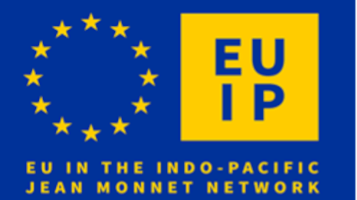In the context of assessing the theme of “Europe in the World”, the Indo-Pacific is a region where the EU wants to make a mark as an international actor in the coming years. However, an important question remains: what is the most appropriate role for the European Union (EU) in the Indo-Pacific?
Strategic effectiveness relies not only on the appropriate internal resources and political will of the EU itself but also that other countries – especially those residing in the Indo-Pacific – share the EU’s vision for the Indo-Pacific. Thus, although many different types of perspectives could be gauged, the network predominately focuses on how decision-makers and policy influencers view, welcome or reject the EU Indo-Pacific strategy thereby offering unique evidence-based insights.
This network will address the critical knowledge gap by coordinating the undertaking of a broad, multi-country examination of political elite policy responses to the EU’s Indo-Pacific Strategy. The choice of case-studies to focus is informed by the contextual diversity of the selected eight specific Indo-Pacific countries: Australia, China, Indonesia, Japan, New Zealand, South Korea, Taiwan and Thailand. These countries represent a broad spectrum in terms of economic size, governance structures, security concerns and interlinking security frameworks and as such their views and approach to the EU’s strategy will be fundamental to determining its success.
The 28 partner universities in the network assess the seven EU priority areas listed in its Indo-Pacific strategy and analysis them in the national and regional context. The country teams have finished the interviews of officials and influencers and presented their preliminary findings in eight so-called sandpits e.g. peer reviews. Michael Reiterer, member of the Korea and Japan teams, participated in the sandpits in Seoul and Tokyo in January 2025. Taking into account these sandpits as well as various online discussions the findings will be reviewed by the authors. The lead University of Canterbury/Christchurch is now preparing a comprehensive and comparative analysis for presentation and discussion at the final event in September 2025 in Brussels.
Country specific interim findings as well as relevant publications by the members of the networks are regularly presented in newsletters which you can visit here.
Selected Project Publications
Michael Reiterer and Lee Il Young, “The Economic Security Tightrope: EU Economic Security Strategy, Friend-Shoring, and European Relations with Indo-Pacific States“, The Journal of East Asian Affairs.
Michael Reiterer, “In Between International Orders – An Era of Instability: The Need for a Reform Agenda and a New Narrative“, The Vienna Institute for International Economic Studies.
Michael Reiterer, “NATO and the Republic of Korea: The AP4 in the Indo-Pacific“, 38 North.
Michael Reiterer, “The Primacy of EU Law Over National Law: Rule of Law Contested – Reflections on the Case of the Polish Constitutional Court“, Springer.
Michael Reiterer, “The Crumbling Edifice of Global Peace“, Facultas.
Michael Reiterer, “EU Cyber Diplomacy: Value- and Interest-Driven Foreign Policy with New Focus on the Indo-Pacific“, Palgrave.
Michael Reiterer, “Regional Trade Agreements in the Indo-Pacific: Does the EU Risk Losing Sight of Their Importance?“, CSDS Policy Brief.
Mason Richey and Michael Reiterer, “Answering the Bell: Japan’s Indo-Pacific Leadership Aspirations“, East Asia Forum.



